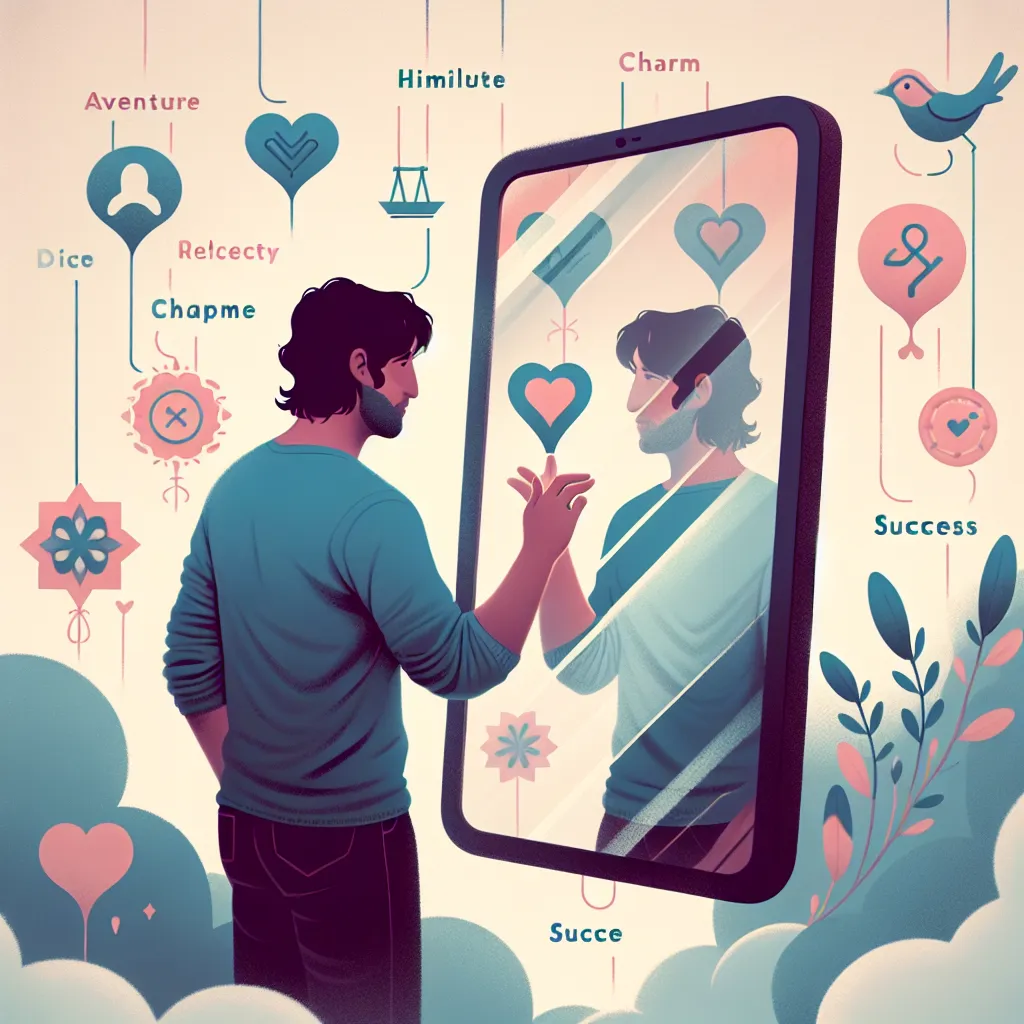Hello, relationship seekers!
Today, we’re diving deep into an important question about relationships: “What digital triggers fuel revengeful emotions on social media after a breakup?”
The Direct Answer
In the digital age, breakups are not just personal but also have a virtual component. The main triggers that fuel revengeful emotions on social media after a breakup include constant exposure to an ex’s online activities, the ability to engage in indirect communication or cyber-stalking, and the temptation to vent or seek validation from online communities. Now, let’s dive deeper into these triggers and explore how you can navigate them.
1. Constant Exposure to an Ex’s Online Activities
The constant exposure to an ex’s online activities can fuel negative emotions.
A. The ‘Out Of Sight, Out Of Mind’ Principle
The old adage ‘out of sight, out of mind’ holds psychological truth. Researchers like Walter Mischel have found that physical distance from a temptation helps resist it.
– Expert Perspectives: Relationship expert Dr. Sheri Meyers explains, “When you’re hurting, your emotional brain is in control. There’s a physiological reaction that takes place—your body is demanding to have that person back, making it hard to let go.” Constant exposure to an ex’s online activities can trigger this reaction.
– Psychological Research: Studies show that seeing an ex-partner’s activities on social media leads to increased distress and longing for the ex-partner, negative feelings, sexual desire, and decreased personal growth post-breakup.
– Real-World Examples: Sarah, a marketing professional, found herself constantly checking her ex’s Instagram after their breakup. She noticed an increase in her negative emotions and decided to unfollow him, which helped her healing process.
B. The Effect of Social Comparison
Social comparison is a process where individuals compare themselves to others to evaluate their own lives.
– Historical Context: Social comparison theory, introduced by social psychologist Leon Festinger in 1954, posits that individuals have an inherent drive to evaluate their own opinions and abilities in relation to others.
– Common Challenges: After a breakup, seeing an ex-partner seemingly happy or successful on social media can trigger feelings of inadequacy and revenge.
– Practical Applications: To mitigate this, limit or eliminate exposure to your ex’s social media.
C. The Role of Digital Memories
Digital memories, such as shared photos or posts, can trigger painful emotions.
– Expert Perspectives: Dr. Tara Marshall, in her research, found that Facebook surveillance was associated with greater current distress over the breakup, negative feelings, sexual desire, longing for the ex-partner, and lower personal growth.
– Psychological Research: The Zeigarnik effect states that people remember uncompleted tasks better than completed ones. Unresolved emotions from a breakup can be considered an ‘uncompleted task’ and digital reminders can trigger these emotions.
– Real-World Examples: Jane, a graphic designer, found herself feeling upset whenever Facebook’s ‘On This Day’ feature showed her old memories with her ex. She decided to use Facebook’s tool to hide these memories, which helped her move forward.
2. Indirect Communication and Cyber-Stalking
Indirect communication and cyber-stalking are other triggers that can fuel revengeful emotions after a breakup.
A. The Danger of Indirect Communication
Engaging in indirect communication or subtweets can trigger negative emotions.
1. The Role of Ambiguity: The ambiguity of indirect communication can lead to misinterpretations and assumptions, fueling negative emotions.
2. The Power of Anonymity: Social media provides a level of anonymity that can encourage negative behavior like spiteful posts.
3. The Cycle of Revenge: Indirect communication can perpetuate a cycle of revenge as one ex-partner may respond negatively to the other’s posts.
B. The Problem of Cyber-Stalking
Cyber-stalking, or obsessively checking an ex’s social media, can lead to negative emotions.
– Expert Perspectives: Dr. Jesse Fox, an associate professor in the School of Communication at The Ohio State University, found that remaining Facebook friends with an ex and checking their profile leads to poorer breakup recovery and personal growth.
– Psychological Research: Research suggests that cyber-stalking can trigger a cycle of obsession, where the more you check an ex’s social media, the more you want to.
C. The Role of Online Communities and Public Opinion
Online communities and public opinion can amplify negative emotions after a breakup.
– Expert Perspectives: Dr. Nicole Ellison, a professor at the University of Michigan School of Information, found that public opinion and the support of online friends can fuel revengeful emotions.
– Psychological Research: Research shows that the desire for revenge increases when individuals feel that they have the support of their social group.
– Real-World Examples: After her breakup, Emily found herself posting about her ex on Reddit and receiving support from other users, which fueled her revengeful feelings. When she stopped posting, she found her feelings of revenge subsided.
3. Venting and Seeking Validation Online
Venting and seeking validation online is another trigger that can fuel revengeful emotions after a breakup.
A. The Power of Venting
Venting can provide temporary relief but can also prolong negative emotions.
– The Cycle of Venting: Research shows that venting might reinforce negative emotions, leading to a vicious circle of anger.
– The Role of Validation: Validation from online communities can encourage further venting and negative emotions.
B. The Danger of Validation Seeking
Seeking validation online can exacerbate revengeful emotions.
– Expert Perspectives: Dr. Brad Bushman, a professor of communication and psychology at The Ohio State University, found that people who received validation for their anger were more likely to advocate for harmful, aggressive, or revengeful actions towards their ex-partner.
– Psychological Research: The validation of negative emotions can reinforce these emotions and behaviors.
C. The Impact of Digital Immortality
Digital immortality can make it harder to let go of revengeful feelings.
– Expert Perspectives: Dr. Elaine Kasket, a psychologist and the author of ‘All the Ghosts in the Machine: The Digital Afterlife of Your Personal Data’, posits that the lingering digital presence of a relationship can prevent emotional healing.
– Psychological Research: Research shows that reminders of an ex-partner in the digital space can trigger feelings of revenge.
4. Additional Context and Considerations
While these triggers are common, individual responses can vary based on personal traits, the nature of the breakup, and one’s relationship with social media.
Conclusion: The Definitive Answer
Based on all the evidence we’ve examined:
– Constant Exposure to an Ex’s Online Activities: Constant exposure to an ex’s online activities, whether through direct social media connections or shared digital memories, can trigger revengeful emotions.
– Indirect Communication and Cyber-Stalking: Indirect communication and cyber-stalking can amplify these emotions, especially when fueled by online communities and public opinion.
– Venting and Seeking Validation Online: Venting and seeking validation online can perpetuate negative emotions and revengeful behaviors.
– Final Verdict: The digital triggers that fuel revengeful emotions on social media after a breakup are constant exposure to an ex’s online activities, indirect communication or cyber-stalking, and the temptation to vent or seek validation from online communities.
This answer is not just about understanding what triggers revengeful emotions, but also about how to navigate the digital landscape post-breakup. It’s crucial to remember that while social media can provide a platform for expression, it can also prolong the healing process if not used wisely.



